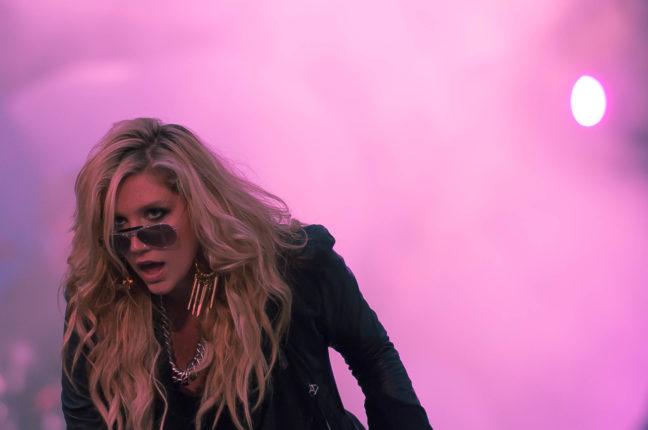After five years of legal battles, personal turmoil and a general musical hiatus, Kesha finally made her triumphant return in August with her third studio album, “Rainbow.”
“Rainbow” marks a significant departure from her previous musical efforts, “Animal” and “Warrior,” presenting a stripped-down version of the flamboyant pop artist. Where both of her previous albums featured heavily produced, anthemic pop tracks such as “Tik Tok” and “Die Young,” “Rainbow” leads off with the acoustic ballad “Bastards.”
However, don’t mistake the softer instrumentation for Kesha losing her raw edge. While the backing track for “Bastards” is much more mellow than we’re used to hearing from Kesha, listening to it brings a quietly vengeful, profane vibe, announcing that she will not let the struggles of the past five years ruin her life or career.
The fact that Kesha did not release an album between 2012 and now was not her own decision, but a result of an extended legal battle between herself and her former producer, Lukasz Gottwald.
According to a 2016 report by Rolling Stone, Kesha sued Gottwald in 2014 to end their contracts, claiming he emotionally, physically and sexually abused her. Gottwald countersued, and although the legal battles still rage on now, Kesha managed to win her musical freedom at the very least.
“Rainbow” does present a much less unified vision than her past albums, but it does present a much more real image of herself than the processed, manufactured pop star she was while working with Gottwald. While “Bastards” rings of a more vengeful Alanis Morissette, while the second track “Let ‘Em Talk,” feels like an album track from The White Stripes.
But the headliner of the album is the fifth track, “Praying.” For anyone who wasn’t following the legal battles or anything about Kesha’s life and struggles since 2012, this will sound rather jarring. So much of Kesha’s previous discography felt vapid and detached; the party girl who sang about getting wasted and laid. But “Praying” shows deep musical understanding and talent.
When Kesha was still working with Gottwald and performing with a dollar sign in her stage name, her work carried a strong vibe of “ugh, no way can she perform live.” Songs like “Take it Off” and “Blah Blah Blah” didn’t exactly portray her as a musical genius, and under Gottwald’s direction, she didn’t really seem to evolve.
But “Rainbow,” and “Praying” specifically, shows an evolution that’s pretty rare in albums that look to produce radio hits. For sake of comparison, look at Taylor Swift’s new song “Look What You Made Me Do,” which is artistic evolution in the same way that a rotting orange is ripening. She’s falling off of the mountain Kesha is summiting.
And oh, that voice. Kesha was never allowed to flex her vocal muscles on her first two albums, but she shines on “Rainbow.” It’s not technically perfect, but these songs don’t want it to be. Her raw belting on “Praying” actually conveys emotion, a depressingly rare commodity in pop nowadays.
Beyond the singles, “Rainbow” is strong, if a little stylistically incoherent. A song like “Boogie Feet” feels a little more like the Kesha we remember, albeit more herself and less like the carefully cultivated image she was forced to present.
The album leaves the listener waiting for what’s coming next, especially after that haunting high note at the end of “Praying.” There aren’t five other people on the Top 20 who can hit that note right now, guaranteed.


